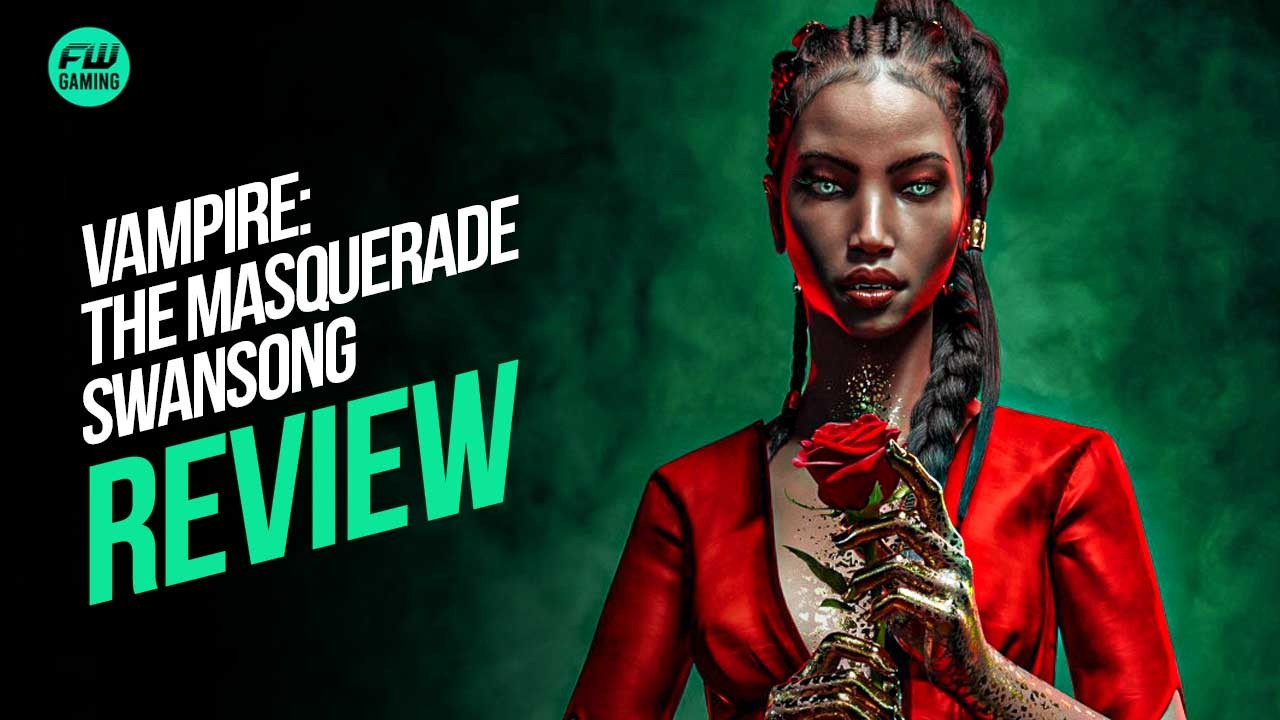Vampire: The Masquerade – Swansong is a narrative-driven detective RPG set in the franchise’s long-established World of Darkness. Vampires lurk in the shadows, hiding among the mortals, in a constant effort to keep up the “Masquerade” and stay undetected. Things rapidly go haywire after a gruesome attack threatens their cover and safety.
Three vampires are sent out to expose and thwart the threat, taking you on a whodunit cat-and-mouse chase, where the creatures of the night need their magnifying glasses more than their fangs. Combining a patchy story, bland characters, obtuse puzzles, and stilted dialog, Vampire: The Masquerade – Swansong fails to create the compelling detective story it aims to tell.
Developed by Big Bad Wolf Studio and published by Nacon, it originally launched on PC, PlayStation, and Xbox in 2022, and was just released on Nintendo Switch. Plagued by blurry visuals and janky performance, the nearly 7-year-old console isn’t doing the game any favors.
A Story That Rests in Pieces
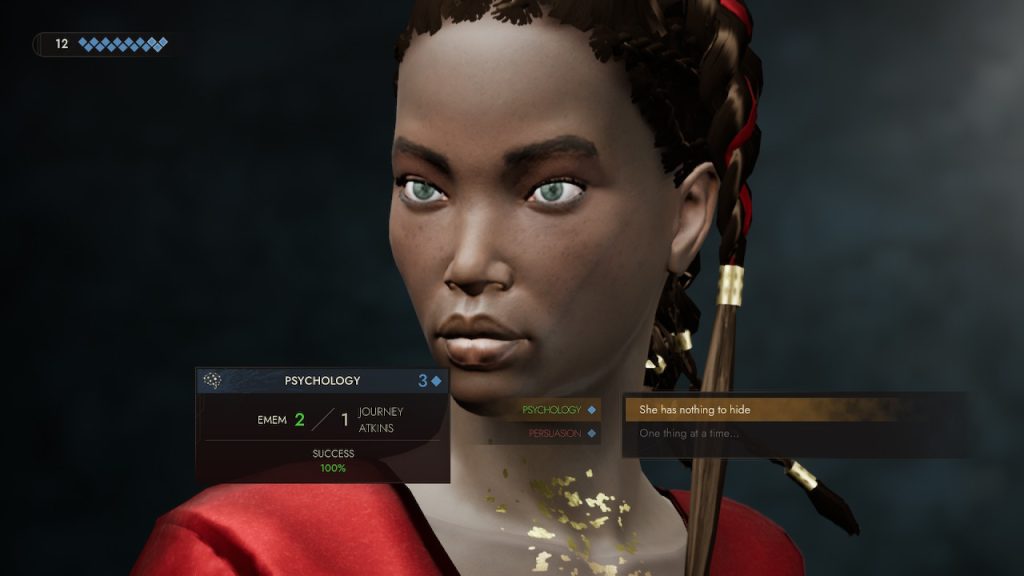
The game immediately throws you into the deep end, with characters wielding jargon, assuming you’ve been part of the World of Darkness for as long as its century-old denizens. To get you up to speed, the game features the “Codex,” a comprehensive history book, where you can read up on the universe’s lore and characters.
Franchise veterans might have an easier time settling in, but even after doing the required reading, you never quite know what exactly is going on. As if pages were torn from a book, crucial details about current events and characters seem to be missing. I constantly found myself feeling like that awkward outsider who joined a group of established friends and just nodded along, not knowing what anyone was talking about.
How the story is structured exacerbates the feeling of reading a fragmented book. You play as three individual vampires: the snippy nightclub owner Emem, the jaded hitman Galeb, and Leysha, a mentally unstable mother of a powerful 8-year-old.
Each character embarks on their own string of missions to uncover the true threat behind the attack. Even though they ultimately have the same goal, they feel like separate storylines that are barely connected and never converge.
The game has an aggravating habit of tearing you out of one character’s storyline at the worst possible moment, to throw you into the other vampire’s plot. These tiny cliffhangers at the end of each chapter are seemingly meant to compel. Instead, they are frustrating, barely justified, and simply immersion-breaking.
With a lack of urgency and mind-numbingly slow pacing, Vampire: The Masquerade – Swansong fails to create drama to pull you in. Even though it picks up the pace toward the end, it ultimately grinds to an abrupt halt and limply stumbles down the cliff’s edge into its untimely and utterly dull demise.
Extensive Yet Inconsequential Skill Trees
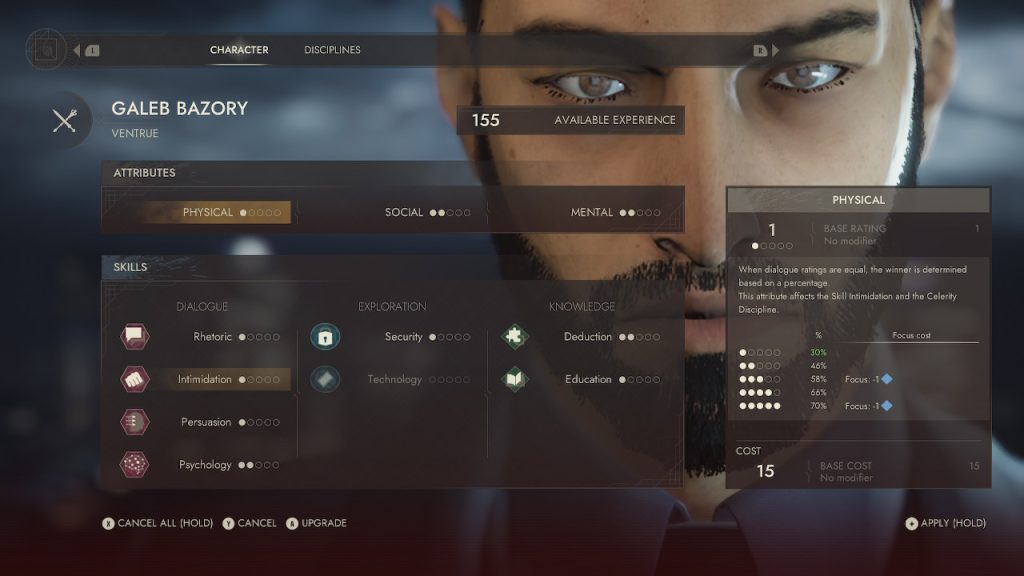
Carrying an air of indifference and self-importance, the main protagonists don’t seem to care much about what is going on themselves. While they each have their traits, relationships, and backgrounds, the game fails to create any sense of personality or give you a reason to care about or relate to them. Their alleged emotions are only expressed in stilted conversations, which make up much of the gameplay.
Multiple-choice dialogs with NPCs, exploring the environment, and uncovering clues move the story forward. For this, each character has an extensive skill tree with different disciplines, attributes, and abilities that can be upgraded using the XP you earn by completing missions. Some skills can give you the upper hand in dialogs, while others can be used to navigate the world.
The skill trees are extensive, allowing you to customize each character. However, they feel terribly underutilized and largely inconsequential. Some of the biggest forks in the road come in the form of ultimatums, in which you make crucial decisions that define a given character’s trajectory. These are mostly unaffected by the skills you pick, making them feel quite superfluous.
This is exacerbated by the unpredictable and arbitrary skill check system in conversations, and becomes especially evident in the game’s “Confrontations.” Here, you have to win a certain number of dialog rounds to achieve a certain goal. Using a skill that you have upgraded to the max and still losing a stage even though it claimed the success rate would be 100% is frustrating, to say the least.
Regardless of how most of these confrontations and ultimatums turn out, the effect they have on the story is oftentimes minimal. Several seemingly pivotal choices I made during my playthrough ended up being completely irrelevant or simply forgotten about.
In Vampire: The Masquerade – Swansong, Key Cards Are Your Prey
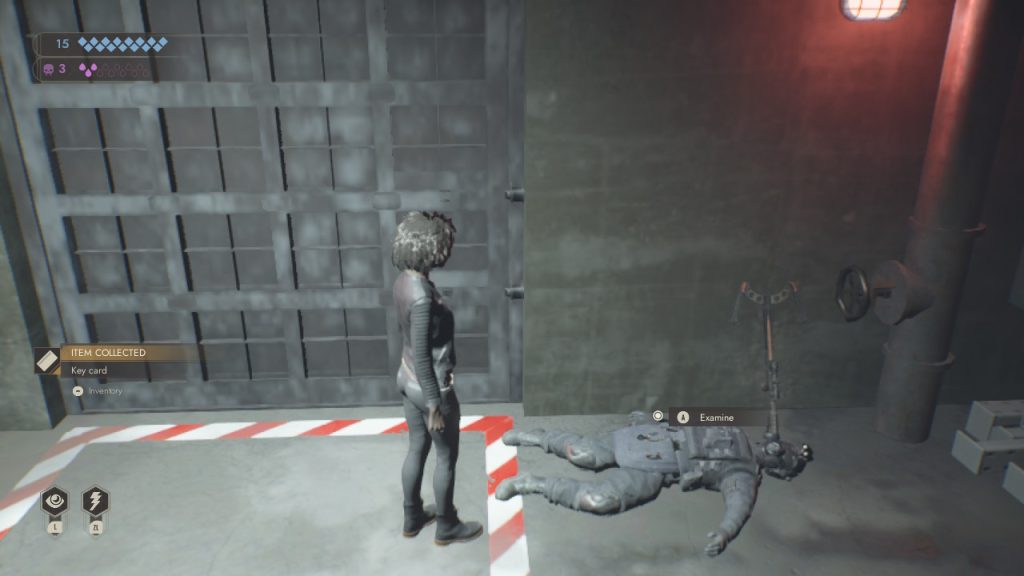
If you’re not conversing with NPCs, you’re exploring large but contained environments with a checklist of objectives and various possible paths to reach your goal. Each character has their own set of vampiric skills that allow you to approach challenges in different ways. Leysha, for instance, can disguise herself and infiltrate enemies’ bases to reach otherwise sealed-off areas. Emem, on the other hand, can warp over large gaps.
While these skills give each of the characters a unique feel, they are largely underused and only occasionally required, as the gameplay loop remains the same: you need to walk around and find clues. With the game’s mind-boggling devotion to security systems, the nocturnal detectives find themselves hunting for key cards and codes more than anything else.
You’ll spend a large chunk of the game scouring through lengthy email threads and post-it notes looking for some kind of key to open a door behind which the next key is hidden. Though few and far between, some of these environmental deduction puzzles can be quite enjoyable. Leafing through archives, perusing reports, and reading text messages, however, is not what I imagined to be doing as a vampire.
The team has certainly gone out of its way to flesh out the world around you with detailed documentation and background information. It is frustrating, though, that most of what you uncover while exploring is completely trivial, making it difficult to identify which information is relevant to the mission.
Gruesome Crimes Turned into Pixelated Blobs
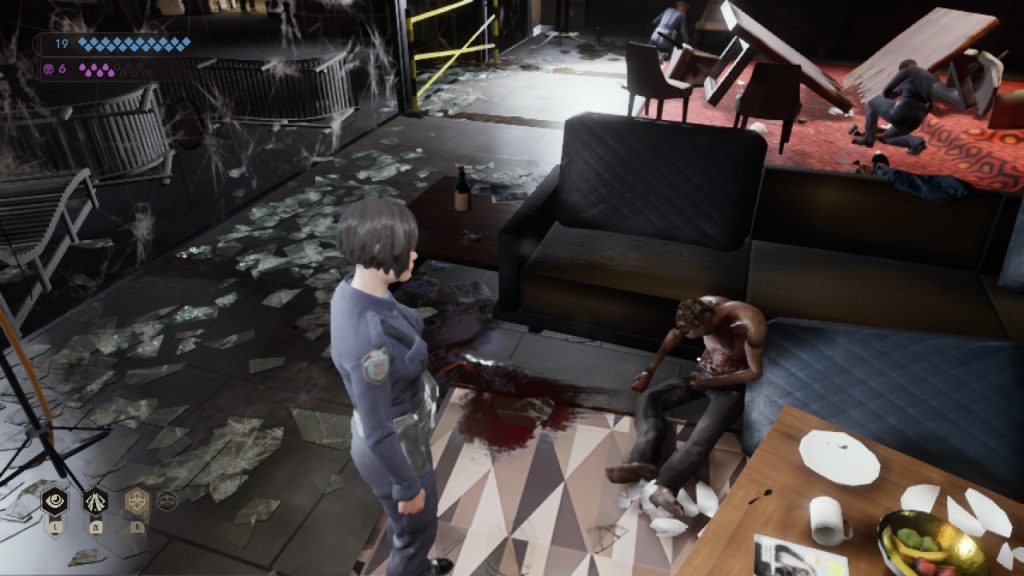
Poor visuals make exploring the world especially jarring, as you can barely decipher what you’re looking at. Investigating the gruesome bloodbath of a crime scene and dissecting mangled bodies is a lot less horrifying when all you’re seeing are reddish pixelated blobs. The visuals are distracting in some moments, completely laughable in others, and utterly undermine the story and gravity of the events.
An overall choppy experience with frame drops and drop-ins, lengthy loading screens, and a lack of dynamic shadows, diminish any chance of immersion. Even though I was impressed by the great variety of unique character designs, their robotic and out-of-sync movements, exaggerated expressions, and blank stares made them a pain to look at.
The UI is clean and easy to navigate, but the font is tiny and can’t be adjusted, rendering it almost unreadable when playing handheld. Unfortunately, playing docked on a TV doesn’t help the game’s cause, but rather makes its lack of polish even more painfully obvious and distracting.
While fans of the franchise might have a better time in the World of Darkness, Vampire: The Masquerade – Swansong offers little to recommend it. A slow-burn narrative, dull conversations, and puzzles that play like tedious chores make it feel as lifeless as its undead protagonists. The appalling visuals and janky performance on the Nintendo Switch are the final nail in the coffin of a vampire detective story that can confidently be left for dead.
5/10
Vampire: The Masquerade – Swansong was reviewed on Nintendo Switch with a code supplied to FandomWire by Dead Good Media.
Follow us for more entertainment coverage on Facebook, Twitter, Instagram, and YouTube.

